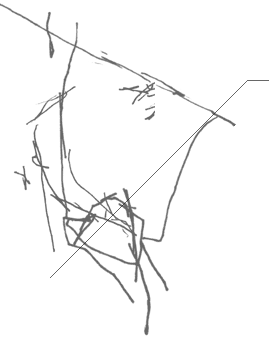Sunday, March 1, 2026 |
||

|

by Michael Goldberg
Monday, January 20, 2003
The Sound Of The "New Rock Revolution"
In the rush to dismiss 'rehashed' rock, we may not really hear what
the new bands have to tell us
|
|||
|
A writer whose opinions I respect wrote recently about what he called the
"annoying term of the year": "New Rock Revolution," which, he wrote,
"translates into 'Past-it Rock Scribes' Nostalgia Trip.' Like it all you
want, but exactly what is 'new' or 'revolutionary' about rehashed '60s
garage-rock and/or '70s blues-rock?"
Nearly two years ago, when The Strokes first began getting media attention, at first mostly from the British rock press, music fans (including some who had not even heard the band yet) complained. Why The Strokes? Weren't there much more deserving bands? Some who had heard them complained that they were a rehash of mid-'70s punk. Even the band's fans looked to the past for comparisons — Television and the Velvet Underground were two of the many retro references. I didn't think The Strokes really sounded like either of those bands — but what if they did? Musicians draw on both the past and their peers for inspiration. If you give Bob Dylan's first album a listen, you'll find that it's quite derivative. The Rolling Stones, who named themselves after a song by American bluesman Muddy Waters, mostly covered American rock, blues and soul classics on their debut. People heard Chuck Berry and the Everly Brothers in the early recordings of The Beatles. Give a listen to Led Zeppelin's debut and you hear a young Englishman singing the blues. In the beginning, none of those artists were saying anything really new, in words or in music. They were copying the artists they loved. As time passed, as they worked at the craft of songwriting and music-making and recording, they found their unique voices, and they brought something fresh to the music as well. Go back to the '60s, back to the "British Invasion." You'll find that lots of bands with longish hair, mod suits and a sound that could be described as "Brit-pop" were signed and marketed, both in Britain and the U.S. Some were future legends — e.g. The Beatles, the Stones and The Who. Some were soon-to-be-forgotten wannabes, such as Herman's Hermits, the Dave Clark Five and Gerry and the Pacemakers. The mid-'70s New York punk scene had such heavyweights as the Patti Smith Group, The Ramones and, yes, Television, it also had a bunch of bands that appeared on a CBGB's compilation that are now forgotten — and for the most part, deservedly so. And how original were Smith, The Ramones and Television? Smith's sound was obviously based on that of the Rolling Stones and Bob Dylan (and others). Setting poetry to music wasn't exactly an original idea. The Ramones looked like The Stooges while playing a garage-rock version of British Invasion rock. Television sounded like they'd listened to a lot of Bob Dylan. And all of that was, and is, just fine. Those artists, and other New York artists that emerged in the mid-'70s, including Mink DeVille and Blondie and the Talking Heads and Richard Hell and the Voidoids, made great rock 'n' roll. Some of them had a tremendous influence on popular music, an influence we still feel. Some of them created original approaches to rock, while others just made some great music that a lot of people could relate to. With the release of The Strokes' The Modern Age EP in early 2001, the media began beating the drum for a "rock revolution." And why not? After years of lame teen pop and crappy hard rock from Limp Bizkit and others, of course we hoped that some great rock would become popular again. Last year, the rock press continued to talk about the "rock revolution" as The Strokes' debut, Is This It, sold over a million copies and the White Stripes, The Hives and others actually showed up on commercial radio and even MTV. Great new punk, garage and new wave bands and duos were singled out. Have those bands been influenced by what came before them? Of course. Does that stop them from being "new"? Does that mean that there isn't a musical "revolution," or at least a changing of the guard, going on? You may like The Strokes' debut album, or the recordings of the MC5-ish (International) Noise Conspiracy, or the Zeppelin-influenced White Stripes, or the no wave-inspired Yeah Yeah Yeahs, or the dozens of other bands that have had a bit of light shone on them. Or you may want to dismiss them as retro, as simply rehashing the past. From my admittedly biased perspective, these and other fairly new bands are, most importantly, making great recordings that I want to listen to, that speak to me, right now, in 2003. But even if you can't hear anything new in the recordings these artists have released thus far, aren't you dismissing them a bit too quickly? Those '60s bands, in many cases, took quite a few albums to arrive at something really "new." But right from the start, they brought an energy and an excitement to the music they played. And they connected with a generation. Just as the New York and London punks did a decade later. Just as the so-called "new rock revolution" bands are beginning to do. It's easy, having seen it all, to believe there's nothing new under the sun. But if you push the cynicism aside and listen with "new" ears, perhaps you'll hear a new sound. I do. |
||||